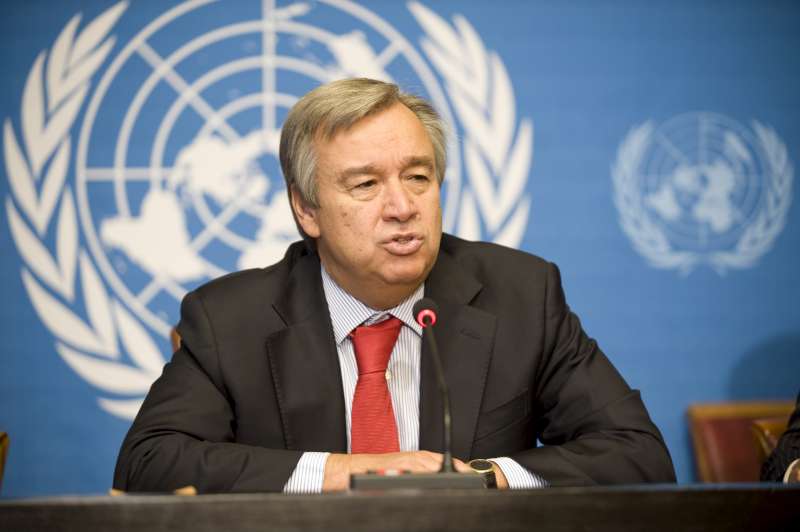UN chief says Fayyad right man for Libya envoy despite US objection
Tue 14 Feb 2017, 09:25:00

DUBAI: UN Secretary-General Antonio Guterres said on Monday he believed former Palestinian prime minister Salam Fayyad was the right person to be the world body’s envoy to Libya after the United States raised objections to the choice.
US Ambassador to the United Nations Nikki Haley has expressed disappointment over Guterres’s choice, saying the United Nations had for too long been “unfairly biased in favor of the Palestinian Authority to the detriment of our allies in Israel.”
“It is a loss for the Libyan peace process and for the Libyan people that I am not able to appoint him,” Guterres said at a summit in Dubai.
“I do not think there is any valid reason to avoid someone who is very competent to do a job that is extremely important,” he said, adding ending the Libyan conflict was in “everybody’s interest.”
It is unclear whether the US objection has ended Fayyad’s candidacy. Guterres declined to answer questions when approached by Reuters immediately after his comments.
Guterres dismissed the accusation that the United Nations is biased on Israeli-Palestinian issues and said the body’s only loyalty was to its charter.
“The UN needs to be able to act with impartiality in all
circumstances and cannot be biased in favor of anybody,” he said.
circumstances and cannot be biased in favor of anybody,” he said.
Guterres said the United Nations would have to engage with the administration of US President Donald Trump as it would “with any other administration.”
Trump, while president-elect, criticized the United Nations as “just a club for people to get together, talk and have a good time” while a spokeswoman said the new administration would “demand some reform and change.”
“Let’s do everything possible to make this relationship a constructive relationship. Having said so, we need to respect our values and we need to make sure a multilateral approach to global problems is valued,” Guterres said.
The UN chief, on a tour of the Middle East, also praised Syria’s main opposition body for approving a delegation to take part in peace talks on Feb. 20 in Geneva.
The talks “are a first step for serious progress in finding a transition that allows for a political solution in which all Syrians feel represented,” he said.
The High Negotiation Committee’s (HNC, the main umbrella group) decision to send a delegation follows indirect talks last month in Kazakhstan where Russia, Turkey and Iran agreed to monitor a fragile truce in Syria.
No Comments For This Post, Be first to write a Comment.
Most viewed from International
Most viewed from World
AIMIM News
Latest Urdu News
Most Viewed
May 26, 2020
Do you think Canada-India relations will improve under New PM Mark Carney?
Latest Videos View All
Like Us
Home
About Us
Advertise With Us
All Polls
Epaper Archives
Privacy Policy
Contact Us
Download Etemaad App
© 2025 Etemaad Daily News, All Rights Reserved.



.jpg)






.jpg)
.jpg)








.jpg)
.jpg)
.jpg)
.jpg)
.jpg)

















